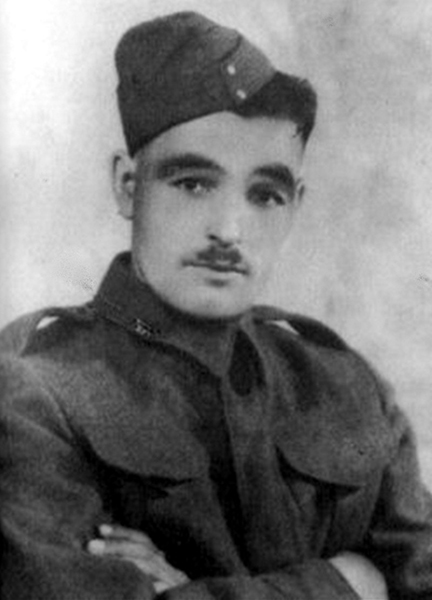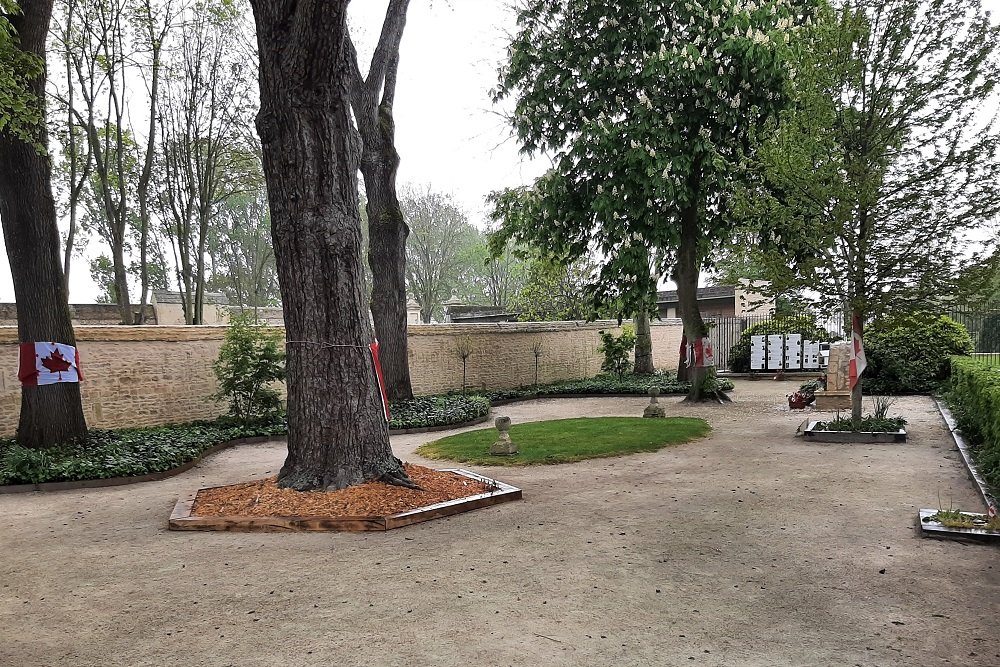Doucette, Charles
- Date of birth:
- July 15th, 1912 (Membertou Reserve in Sydney/Nova Scotia, Canada)
- Date of death:
- June 7th, 1944 (Saint-Germain-la-Blanche-Herbe, France)
- Buried on:
- Canadian War Cemetery Beny-sur-mer
Plot: VII. Row: A. Grave: 16. - Service number:
- F/55317
- Nationality:
- Canadian
Biography
Charles Doucette was a Mi'kmaq soldier from Membertou Reserve in Sydney, Nova Scotia. He grew up in Cape Breton, the son of Peter and Mary Josephine Doucette, and was deeply rooted in his Indigenous heritage. Before the war, Charles worked as a labourer and handyman, known for his resourcefulness and dedication to his family. He married Mary Jane Gould on September 15, 1934, and together they had four daughters: Caroline, Rachel, Elizabeth Mary, and Marie Therese. Charles enlisted in the Canadian Army on June 19, 1940.
He joined the North Nova Scotia Highlanders, part of the 3rd Canadian Infantry Division, and was deployed overseas in July 1941. Though he spoke little English and signed his enlistment papers with an "X," Charles was well-liked and respected within his battalion. He endured the rigors of military training despite a history of tuberculosis, never complaining or seeking medical exemption. His quiet strength and resilience made a lasting impression on his comrades.
On June 6, 1944, Charles landed in Normandy as part of the D-Day invasion. The following day, during the Battle of Authie, his unit ran out of ammunition and was captured by the 12th SS Panzer Division. Charles was among at least 18 Canadian soldiers who were executed after surrendering, a war crime later investigated during the Kurt Meyer trial. His body was initially buried in a communal grave and later reinterred with full military honors at Beny-sur-Mer Canadian War Cemetery in France.
His grave was selected to represent Canada during the 75th anniversary of D-Day, a poignant tribute to a man who gave everything despite the injustices he faced at home.
Do you have more information about this person? Inform us!
- Period:
- Second World War (1939-1945)
- Period:
- Second World War (1939-1945)
- Period:
- Second World War (1939-1945)
- Period:
- Second World War (1939-1945)








